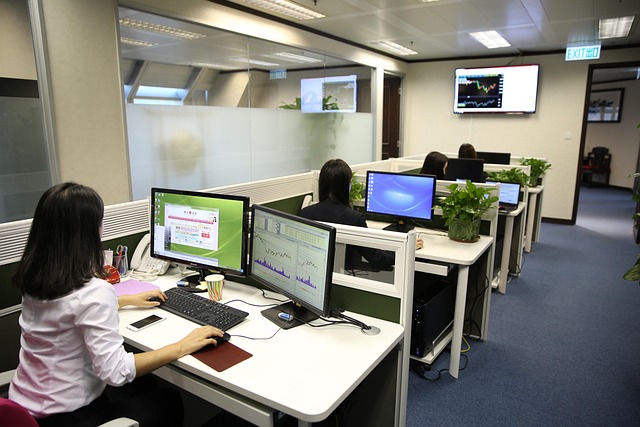The Future of Remote Work: Transforming Business Models
The COVID-19 pandemic accelerated a shift that was already underway; remote work has transitioned from a niche perk to a foundational element of modern business strategy. As we look to the future, it is clear that remote work will not only continue to play a critical role but will also fundamentally alter the essence of business models across various sectors. In this article, we explore the implications of remote work on business operations, team dynamics, corporate culture, and employee engagement, and address how organizations can harness this shift to ensure long-term sustainability and growth.
The Evolution of Remote Work
Remote work has existed in various forms for decades, often limited to specific industries such as technology and consulting. However, the pandemic forced businesses worldwide to embrace comprehensive remote working solutions. According to a report by McKinsey, companies that had previously resisted flexible work arrangements found themselves adopting them almost overnight. This evolution presents exciting opportunities but also challenges that must be addressed to fully harness the benefits of remote work.
Impact on Business Operations
As organizations adapt to remote work, their operational processes will inevitably change. The most noticeable shift is the reliance on technology for communication and collaboration. Tools like video conferencing software, project management platforms, and instant messaging applications have become indispensable assets in the remote work environment.
In this new landscape, businesses are re-evaluating their infrastructure, moving from traditional office-based models to hybrid or fully remote configurations. This transition invites companies to reassess their real estate investments, operational costs, and overall work strategies. In a remote-first world, businesses must focus on flexibility and adaptability, with a significant emphasis on digital transformation.
Redefining Team Dynamics
The traditional workplace fostered an environment for spontaneous interactions and collaborative brainstorming. However, with remote work, team dynamics have shifted. Organizations now face the challenge of fostering a sense of belonging among remote teams. Effective virtual team management involves cultivating a culture of openness, trust, and inclusivity, which can be achieved through intentional practices.
Regular check-ins, team-building activities hosted online, and transparent communication are crucial to maintaining morale and cohesion. As leaders adopt these strategies, they will not only combat feelings of isolation among team members but will also build more robust and engaged teams that can thrive in a remote environment.
Transforming Corporate Culture
Corporate culture, once synonymous with physical environments and shared experiences, is evolving. A strong culture can be a powerful tool for attracting and retaining talent, regardless of geographic boundaries. As businesses embrace remote work, leaders must redefine what corporate culture means in this context.
Organizations are increasingly prioritizing values such as flexibility, work-life balance, and employee well-being. This shift calls for tailored approaches to ensure that all employees feel valued and connected to the company’s mission. Tools such as virtual wellness programs, mental health resources, and recognition platforms can help to commemorate achievements and foster a sense of community.
As corporate culture evolves, organizations may tap into diverse perspectives and ideas from different geographical regions. The cultural richness derived from an inclusive remote workforce can enhance creativity, innovation, and problem-solving capabilities, ensuring that businesses remain competitive in a global market.
Employee Engagement in a Remote Setting
Engagement is paramount to productivity, especially in remote environments. Employees working from home may struggle with distractions and a lack of structure, which can negatively impact their engagement levels. Upward of 70% of employees express a desire for flexibility in their work, and businesses must respond effectively by creating an environment where employees feel inspired and engaged from afar.
To fuel engagement, leaders should encourage autonomy and provide employees with the resources they need to excel. Frequent feedback and recognition for achievements can improve motivation levels. Additionally, incorporating professional development opportunities despite the physical distance will empower employees to further their skills and foster a growth mindset.
Innovation in Business Models
The integration of remote work has prompted organizations to innovate their business models across industries. Companies are harnessing digital technologies to stay relevant, streamline operations, and create new revenue streams. For example, a traditional retail business can benefit from an omnichannel approach, whereby customers can engage through e-commerce, social media, or even personalized virtual experiences.
Furthermore, service-oriented businesses have pivoted to online offerings. Consulting firms now provide remote consultations, while educational institutions expanded their curriculum delivery to online platforms. Remote work enables organizations to reach a wider audience, allowing them to grow and scale more efficiently.
Challenges and Considerations
While remote work offers numerous benefits, the shift comes with challenges that organizations must navigate. One critical concern is cybersecurity. With employees accessing sensitive company data from various locations, businesses must ensure that they have robust cybersecurity measures in place.
Technology adoption can also present hurdles. Not all employees have the same level of digital literacy, and companies must invest in training and support to bridge these gaps. Furthermore, it is vital to acknowledge that remote work is not one-size-fits-all; individualized approaches are essential to cater to diverse employee needs and preferences.
The Future is Hybrid
As we look forward, it is apparent that a hybrid work model—where employees split their time between the office and remote work—will become prevalent. According to a survey conducted by Gartner, 82% of company leaders plan to allow employees to work remotely at least part of the time moving forward. This nuanced approach enables organizations to benefit from the advantages of remote work while maintaining the collaborative spirit of face-to-face interactions.
The success of a hybrid model relies on continued investment in technology, management practices, and organizational culture. Companies must prioritize developing agile workflows that can accommodate both in-office and remote employees. By fostering strong communication practices and ensuring equal access to opportunities for all employees, organizations can create a cohesive and thriving workplace.
Conclusion
The future of remote work is not just about allowing employees to work from a location of their choice; it represents a significant transformation of business models. Companies that embrace this shift will find opportunities to innovate, engage employees, and enhance their operational frameworks. By addressing the challenges and prioritizing inclusivity, organizations can harness the full potential of remote work while redefining what it means to thrive in a changing world. The trajectory of remote work points to a rich landscape where flexibility, creativity, and resilience become cornerstones of modern business success.


